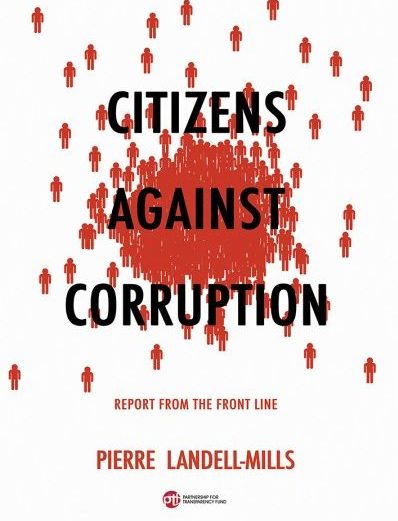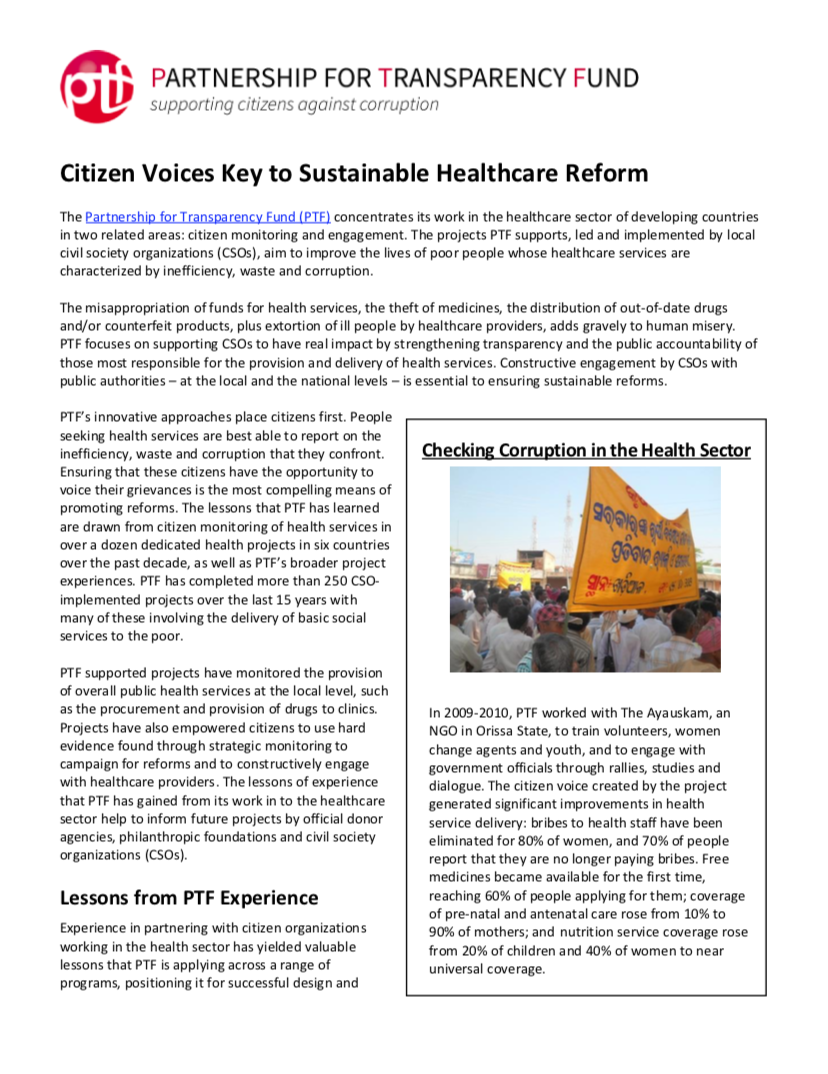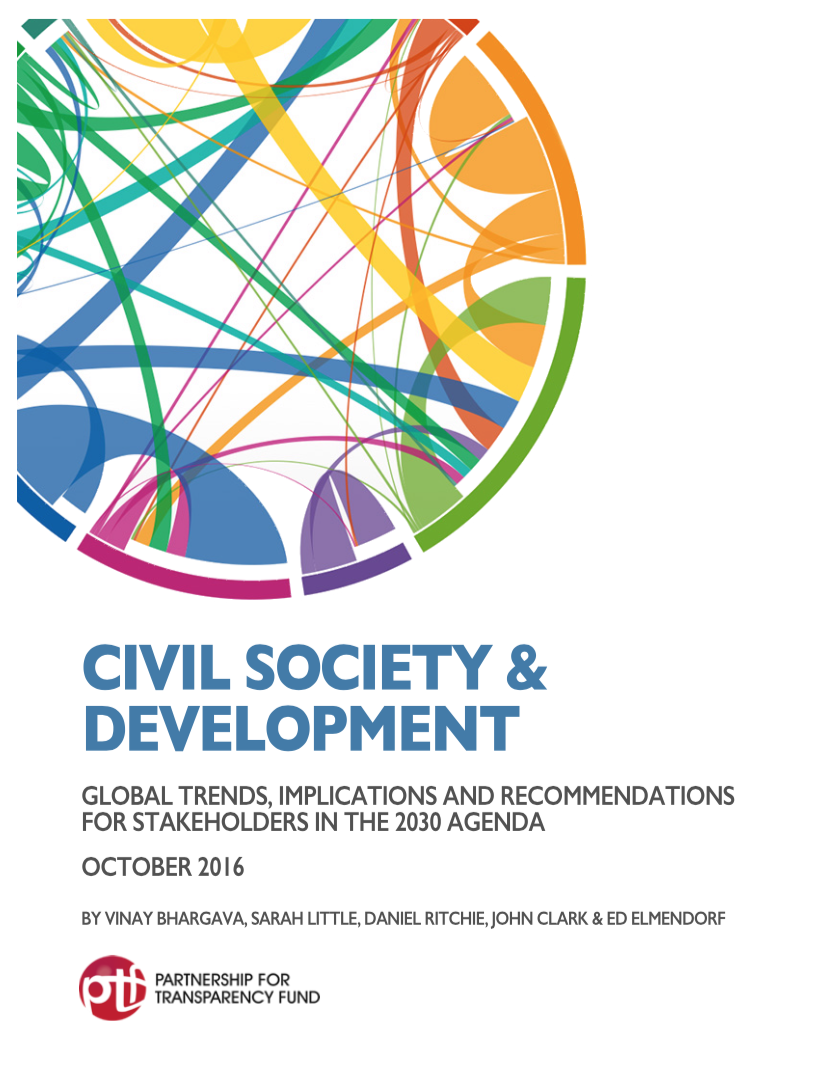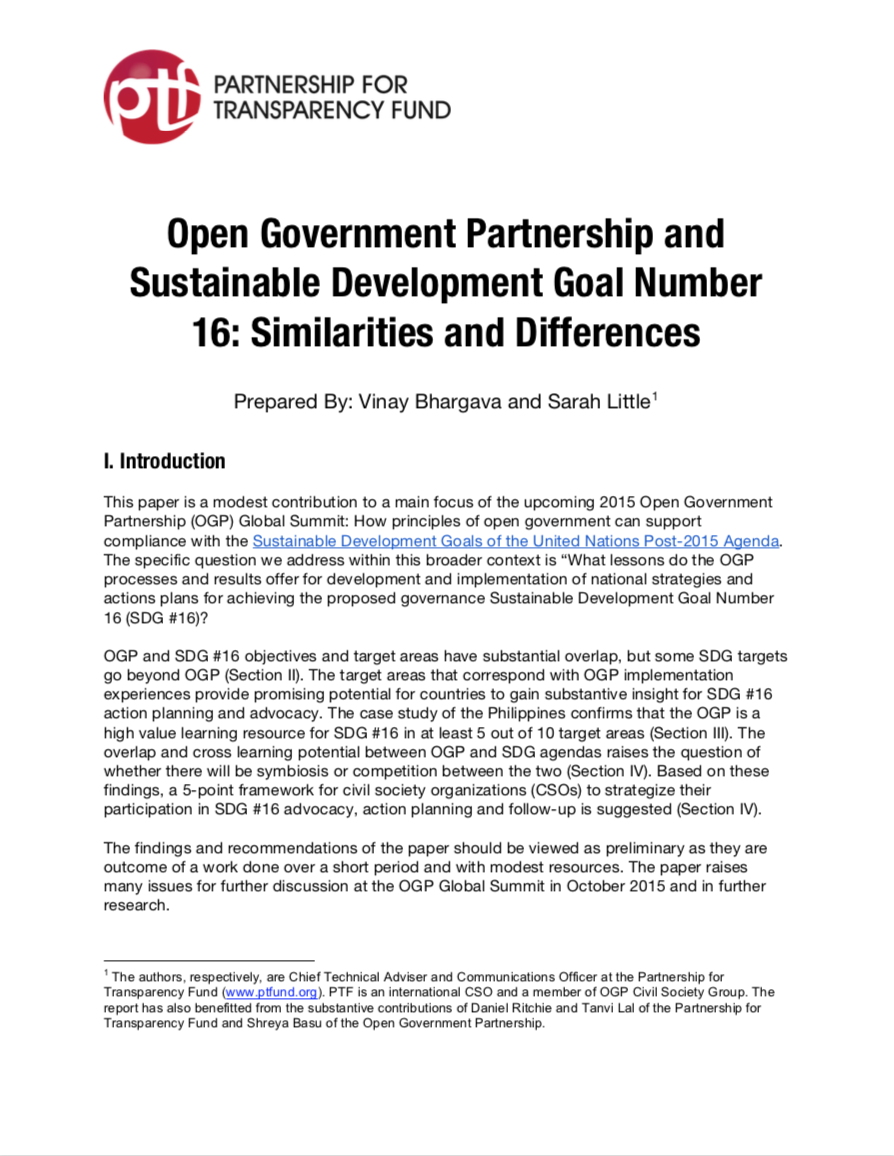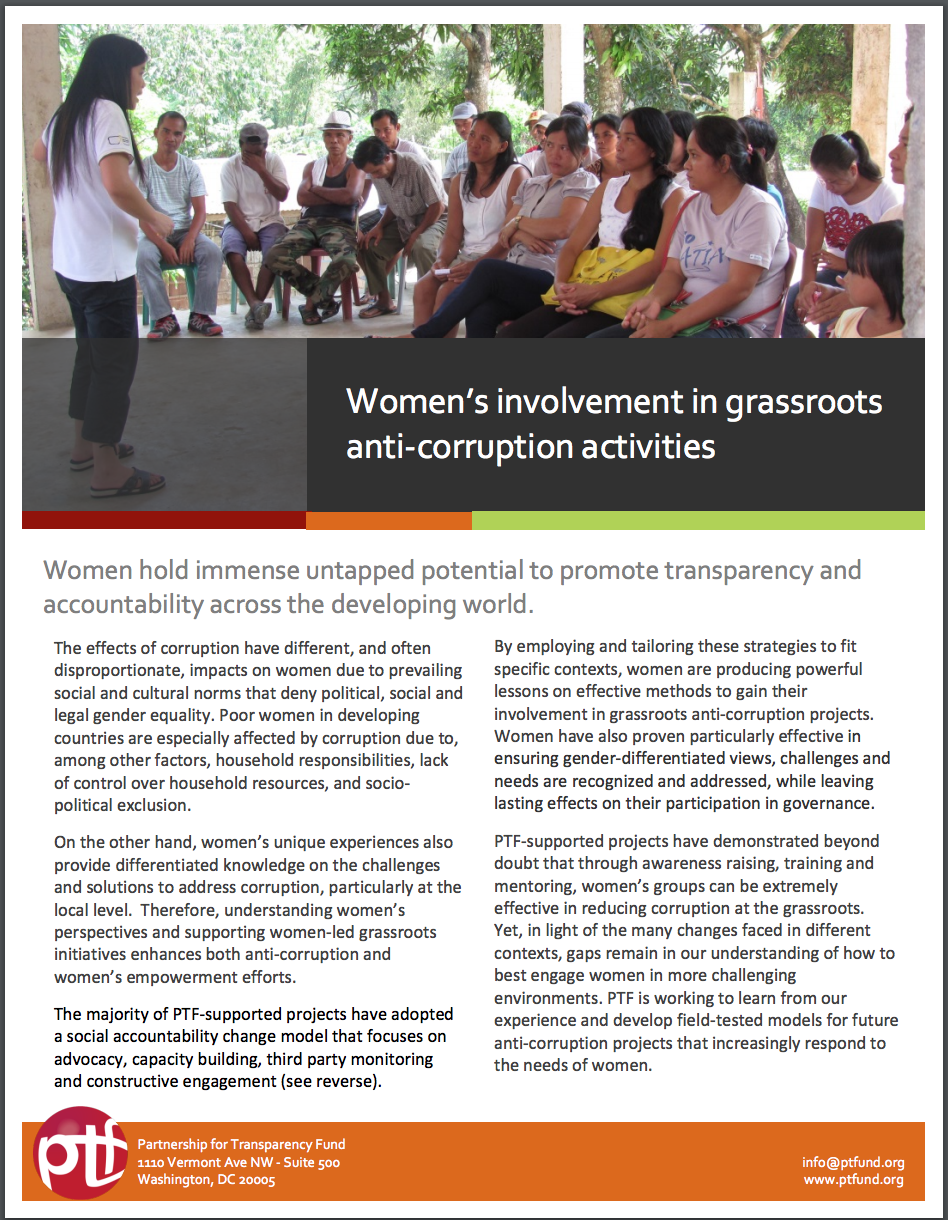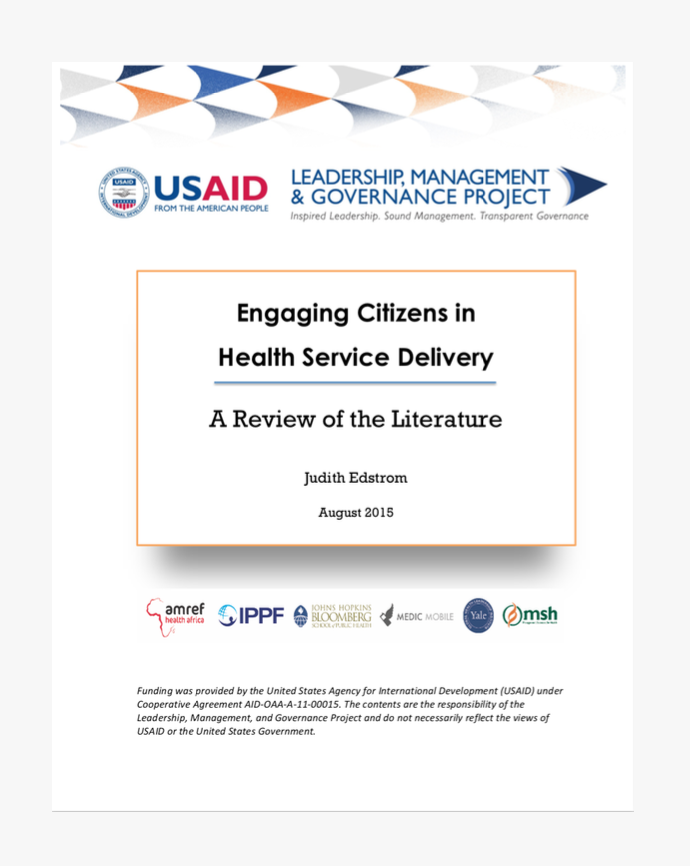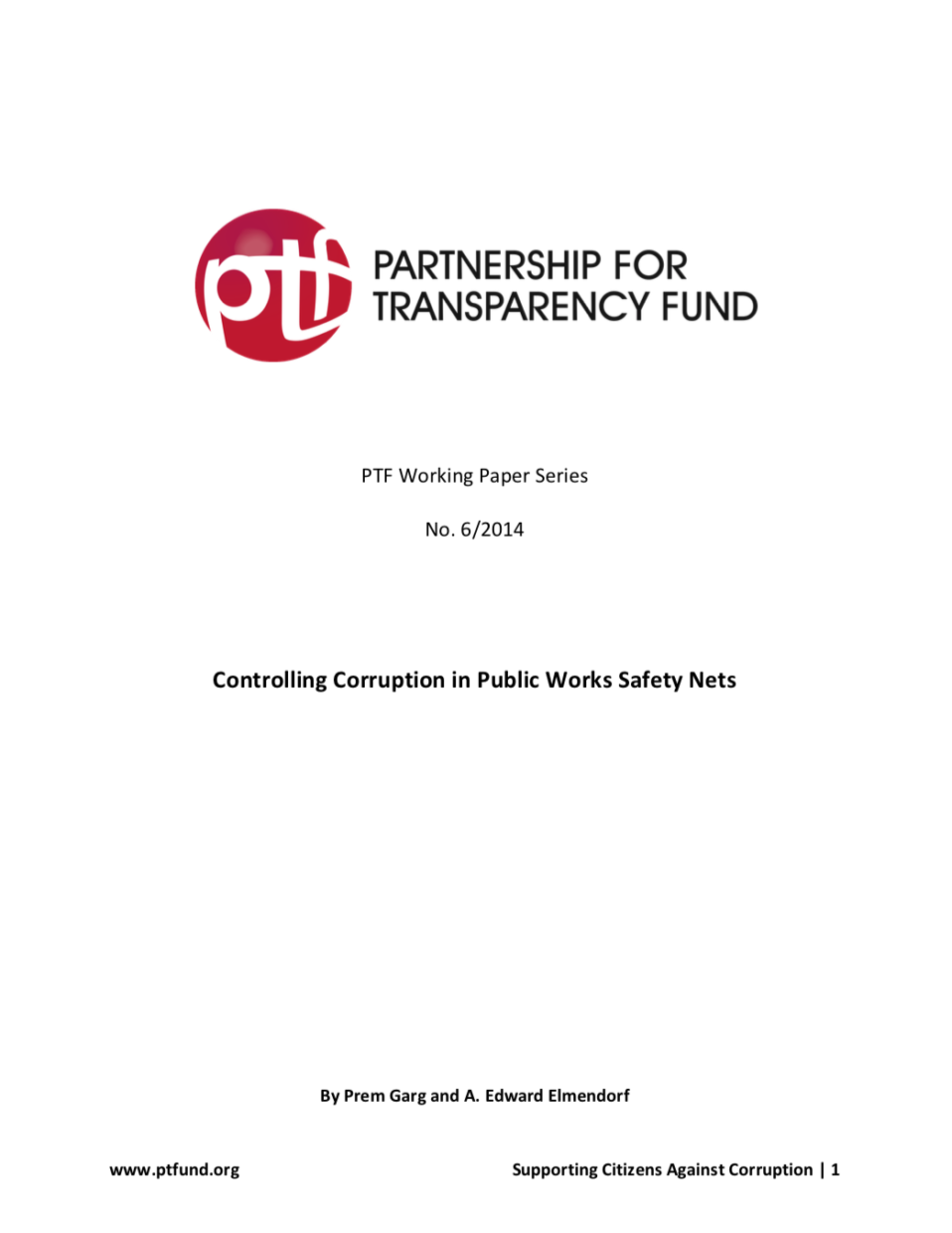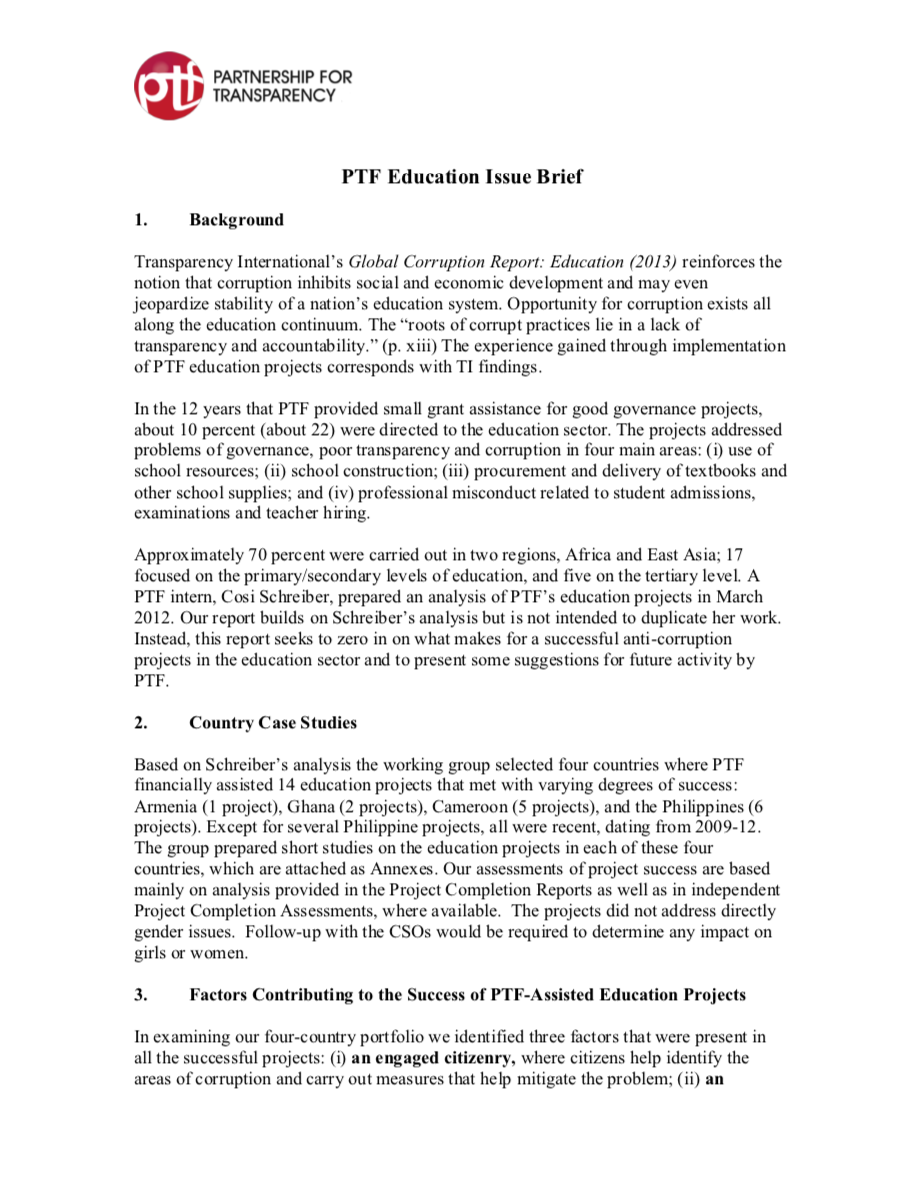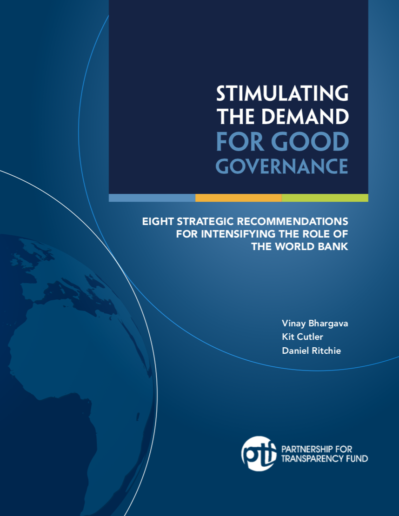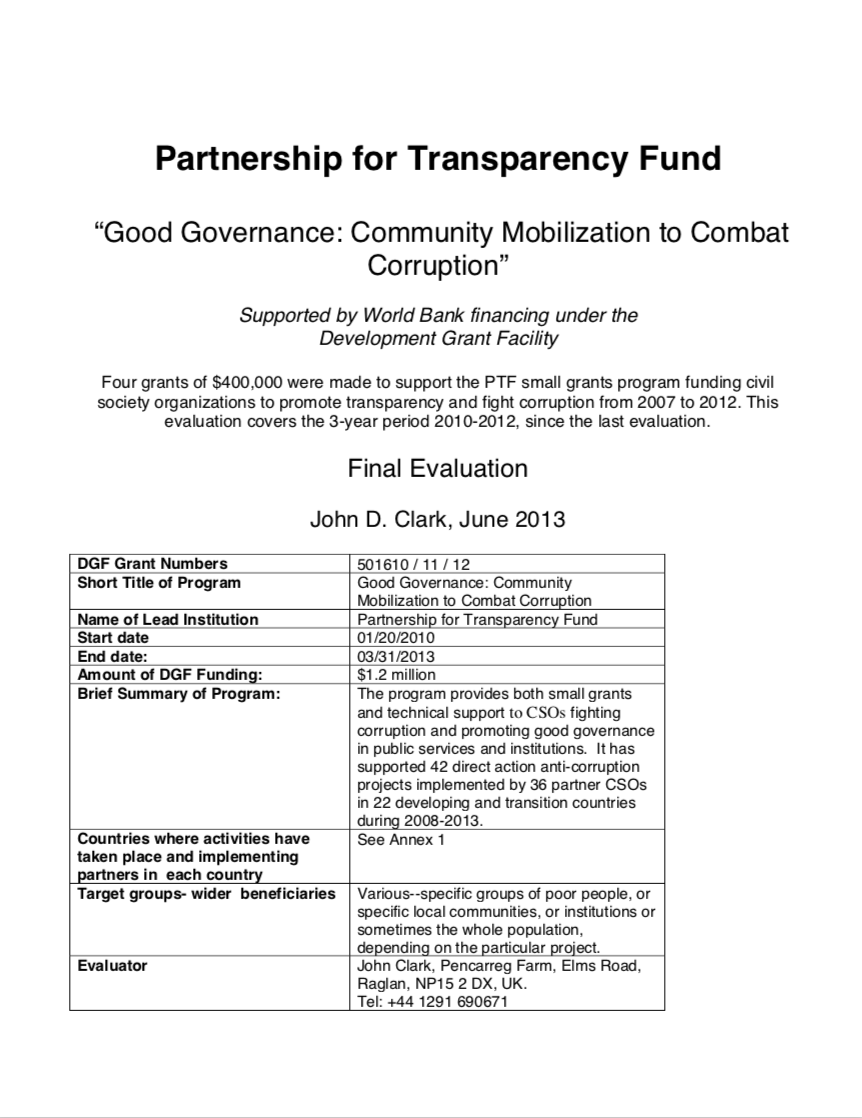Over the last dozen years The Partnership for Transparency Fund has supported with money and expert advice more than 250 projects across the developing world to reduce corruption. Now, in a brand new book, Landell-Mills reviews the record: he highlights the civil society organizations that are making a real difference…...
Citizen Voices Key to Sustainable Healthcare Reform
The Partnership for Transparency Fund (PTF) concentrates its work in the healthcare sector of developing countries in two related areas: citizen monitoring and engagement. The projects PTF supports, led and implemented by local civil society organizations (CSOs), aim to improve the lives of poor people whose healthcare services are characterized…...
Civil Society & Development: Global Trends, Implications and Recommendations for Stakeholders in the 2030 Agenda
The 2030 Agenda for Sustainable Development commits all 193 UN Member States to achieving 17 Sustainable Development Goals (SDGs) through collective efforts between governments, the private sector and civil society. The 2030 Declaration specifies roles and responsibilities for civil society to play but is ambiguous on how partnership structures would…...
Open Government Partnership (OGP) and Sustainable Development Goal Number 16 (SDG#16): Similarities and Differences
This paper is a modest contribution to a main focus of the upcoming 2015 Open Government Partnership (OGP) Global Summit: How principles of open government can support compliance with the Sustainable Development Goals of the United Nations Post-2015 Agenda. The specific question we address within this broader context is “What…...
Women’s Involvement in Grassroots Anti Corruption Activities
The effects of corruption have different, and often disproportionate, impacts on women due to prevailing social and cultural norms that deny political, social and legal gender equality. Poor women in developing countries are especially affected by corruption due to, among other factors, household responsibilities, lack of control over household resources,…...
Engaging Citizens in Health Service Delivery: A Literature Review
This report summarizes the current findings on citizen engagement instruments and examines whether these interventions have contributed to enhanced health practices and ultimately on improved health outcomes. The publication was produced by PTF Adviser, Judith Edstrom, under USAID’s Leadership, Management, and Governance Project, a USAID-funded program to collaborate with health…...
Controlling Corruption in Public Works Safety Nets
Many governments support publically-funded rural works programs to provide safety nets for the rural poor and to deploy the underused labor productively. It is estimated that developing countries spend over 10 billion dollars a year on such programs aiming to benefit over 100 million poor. Because of their decentralized nature…...
Education Issue Brief
Transparency International’s Global Corruption Report: Education (2013) reinforces the notion that corruption inhibits social and economic development and may even jeopardize stability of a nation’s education system. Opportunity for corruption exists all along the education continuum. The “roots of corrupt practices lie in a lack of transparency and accountability ......
Stimulating Demand for Good Governance
This study focuses on the World Bank’s recent “Governance and Anti-Corruption” (GAC) policies. The report stresses that the Bank’s goal to significantly scale-up its work in the anti-corruption area with civil society organizations (CSOs) has been hampered by: its approaches that first seek host government executive branch consent; poor publicity…...
- 1
- 2

